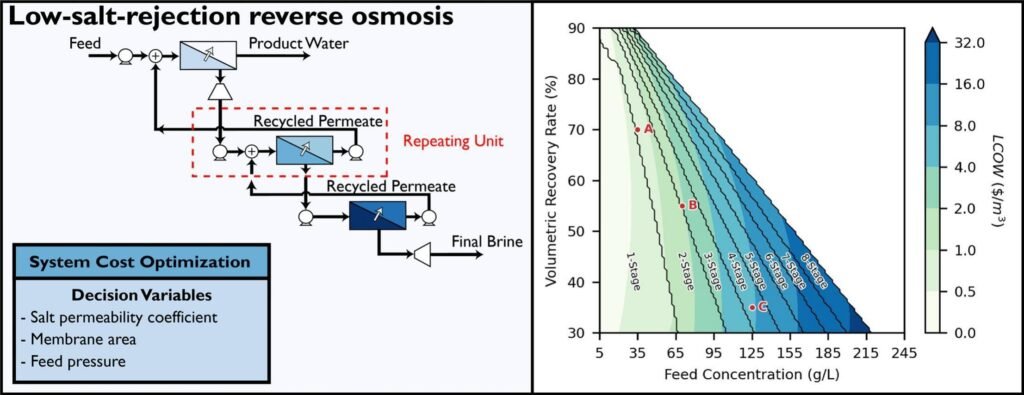Countries can no longer afford to dump the saltiest sources back because the world’s water supplies are already decreasing and are getting saltier. About 80% of the wastewater, which includes water used in mining, power plants, and agriculture, is sent back into the environment untreated and useless, wasting a valuable resource.

Although the most economical and energy-efficient method of treating seawater and briny groundwater continues to be reverse osmosis, conventional reverse osmosis is unable to handle super-salty waters, which have a salt content that is twice that of the ocean.
Now, in a new study, members of the National Alliance for Water Innovation (NAWI) research consortium analyzed an emerging form of reverse osmosis, called low-salt-rejection reverse osmosis. With the use of a supercomputer, the team has created a mathematical model that could swiftly assess the cost, clean water output, and energy consumption of more than 130,000 different system configurations.

According to their findings, low-salt-rejection reverse osmosis is frequently the most economical option, with the potential to cut the cost of providing clean water by up to 63%. But the design is so new it is still theoretical 🙂
Using the supercomputer the team can evaluate: How many membrane stages are optimal? How many recycling loops are needed? And how much cost and energy do those loops add? To answer these questions, researchers could calculate, individually, how much clean water each design could produce from waters with different concentrations of salt.

The researchers are able to do all of the above in a few minutes with high-performance computing else it would have potentially taken a really, really, really long time for them to solve. Next, the researchers hope to partner with experimental teams to build and evaluate how low-salt-rejection reverse osmosis systems function in the real world.
Reference- Journal Desalination, Interesting Engineering, National Geographic, New Horizon, Tomorrows World






